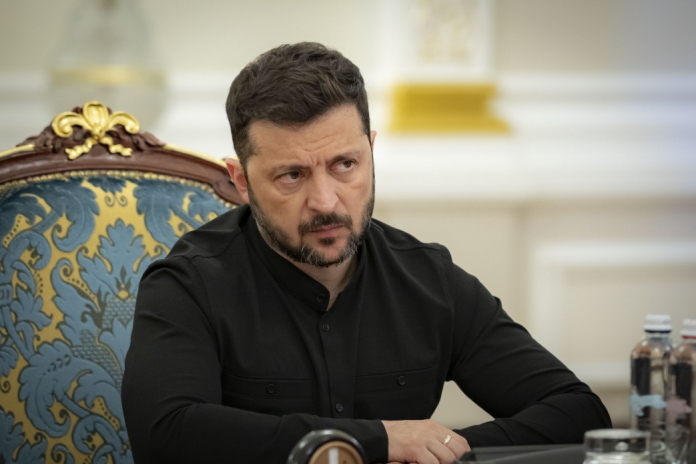President Volodymyr Zelensky signed into law a controversial bill stripping Ukraine’s National Anti-Corruption Bureau (NABU) and Specialised Anti-Corruption Prosecutor’s Office (SAPO) of their independence, triggering domestic outcry and international concern.
The Verkhovna Rada (Ukraine’s parliament) approved draft law №12414 on 22 July with 263 votes in favour, against 13 opposed and 13 abstentions, completing a dramatic legislative and operational assault on anti-graft institutions within a single day.
The legislation grants the Prosecutor General sweeping new authorities, fundamentally restructuring Ukraine’s anti-corruption architecture.
Under the provisions, the Prosecutor General now gains unrestricted access to all NABU investigations, the power to issue binding instructions to detectives, unilateral authority to reassign cases from NABU to other agencies, and sole discretion to close investigations against high-ranking officials, including ministers, MPs, and central bank governors.
Crucially, the head of SAPO loses autonomy to independently appoint prosecutors to investigative groups. Oleksandr Klymenko, head of SAPO, starkly characterised the outcome:
This effectively destroys the independence of both institutions from political influence and pressure on our investigations … Thus, in principle, this is the end of the independent work of the two anti-corruption bodies.
The parliamentary vote followed coordinated security operations targeting NABU officers. On Monday, the Security Service of Ukraine (SSU) conducted approximately 70 searches across NABU’s regional offices without obtaining prior court orders, a move NABU contested as procedurally unlawful.
The SSU justified its actions as necessary to counter alleged Russian infiltration, announcing the detention of senior NABU detective Ruslan Magamedrasulov on suspicion of “illegal business activities with Russia” and accusing another detective from a classified unit of espionage for transmitting sensitive data to Russian agents.
Institutional demolition and backlash abroad
NABU Director Semen Kryvonos made a last-minute appeal to President Zelensky urging him to veto the legislation, calling it a death knell for reforms born of the 2014 Revolution of Dignity. His warnings found resonance abroad, where European Commission spokesman Guillaume Mercier confirmed the EU is “deeply concerned” about developments, stressing that NABU and SAPO must operate independently to effectively fight corruption and maintain societal trust.
Though Mercier clarified that Brussels isn’t currently considering suspending financial assistance, the Group of Seven (G7) ambassadors separately conveyed “serious concern” regarding the SSU’s investigations into NABU, signalling potential diplomatic repercussions.
International media echoed institutional disquiet, with the Financial Times framing the law as a step in a series of manoeuvres against reformists and anti-corruption fighters, while Le Monde bluntly declared that Ukrainian deputies have stripped anti-corruption bodies of their independence.
Kyiv Mayor Vitali Klitschko delivered a scathing indictment of the legislative overhaul:
Today’s decision does not bring Ukraine closer to the European Union, democracy, or the rule of law… Destroying anti-corruption bodies, local self-government, and silencing activists under cover of war pulls Ukraine toward authoritarianism.
Opposition MP Yaroslav Zhelezniak, who voted against the bill, expressed visceral dismay: “I feel intense shame for people in the chamber who over six years have sunk to this… The entire independence of NABU and SAPO has effectively been liquidated.”
Geopolitical gambit
The lightning-fast consolidation of control over anti-corruption institutions represents a bold assertion of executive authority, dismantling US- and EU-backed oversight mechanisms painstakingly established after 2014. However, Ukrainian officials reportedly believe that neither Brussels nor Washington will risk suspending military or financial aid during active hostilities, despite vocal criticism.
Kyiv is expected to frame the measures as “temporary wartime consolidations,” pledging post-conflict restoration of independence.
However, significant risks endure. Bloomberg reported that Ukraine’s “hunt” against anti-corruption bodies could have a devastating impact on Kyiv’s plans to secure military assistance from allies, particularly as it concurrently requests tens of billions in European funding for defence.
Relations with Washington under the Trump administration present another uncertainty. While officials speculate Trump may care little about institutions like NABU, historically linked to Democratic Party initiatives, complications could arise from recent agreements on Ukrainian rare earth minerals.
The dissolution of NABU and SAPO’s autonomy marks a pivotal moment in Ukraine’s governance trajectory, exchanging internationally lauded checks and balances for centralised control justified through wartime exigency and counter-espionage rhetoric.
